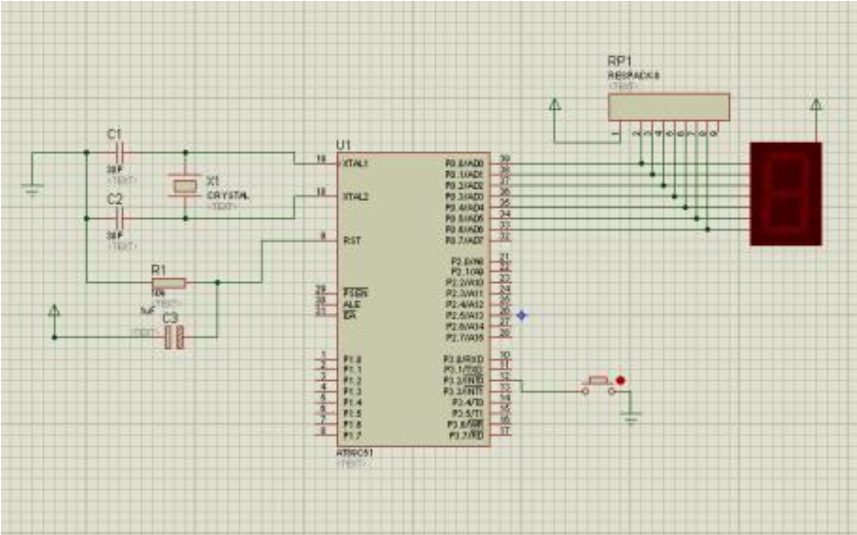1 前言
最近博主在后台收到一位朋友的咨询,说他最近参加了一场技术面试,有这么一道笔试题:
请使用C语言的宏定义实现一个功能,求得某个整型数M在N字节对齐的时,它的值大小。
说明:
1.M是一个非负整数;
2.N是2的整数倍,值可能是1,2,4,8,16等等。
要求:
1.不得使用除法(/);
2.不能使用函数实现,只能用宏实现;
3.自行设计测试用例,明确得出测试用例执行成功与否。2 代码实现
刚好,今天比较清闲,茶余饭后,顺手撸了一把代码:
#include
#include
/* max test number for aligned */
#define MAX_TEST_NUM 1000
/* default for 8 bytes */
#define DEF_ALIGNED_BYTES 8
/* n = 2/4/6/8/16/... */
#define GET_ALIGNED_2_POWER_NUM(num, n) (((num) + (n) - 1) & (~((n) - 1)))
int main(int argc, const char *argv[])
{
int i = 0;
int max_cnt = MAX_TEST_NUM;
int aligned_bytes = DEF_ALIGNED_BYTES;
int aligned_num;
if (argc > 1) {
aligned_bytes = atoi(argv[1]);
if (aligned_bytes < 0) {
printf("error aligned_bytes input !\r\n");
return -1;
}
}
/* test cases start */
for (i = 0; i < max_cnt; i++) {
aligned_num = GET_ALIGNED_2_POWER_NUM(i, aligned_bytes);
//printf("%-4d ALIGNED %d => %-4d\r\n", i, aligned_bytes, aligned_num);
if (aligned_num % aligned_bytes != 0) {
printf("error aligned_num get: %-4d ALIGNED %d => %-4d\r\n", i, aligned_bytes, aligned_num);
printf("test cases (0 ~ %d) ALIGNED %d [ FAIL ] !\r\n", max_cnt, aligned_bytes);
return -1;
}
}
printf("test cases (0 ~ %d) ALIGNED %d [ OK ] !\r\n", max_cnt, aligned_bytes);
return 0;
}3 代码验证
ubuntu下面使用gcc编译,得到可执行文件:
gcc -o test main.c跑了下测试用例:
recan@ubuntu:~/llc/aligned_macro_test$ ./test 2
test cases (0 ~ 1000) ALIGNED 2 [ OK ] !
recan@ubuntu:~/llc/aligned_macro_test$
recan@ubuntu:~/llc/aligned_macro_test$ ./test 4
test cases (0 ~ 1000) ALIGNED 4 [ OK ] !
recan@ubuntu:~/llc/aligned_macro_test$
recan@ubuntu:~/llc/aligned_macro_test$ ./test 8
test cases (0 ~ 1000) ALIGNED 8 [ OK ] !
recan@ubuntu:~/llc/aligned_macro_test$
recan@ubuntu:~/llc/aligned_macro_test$ ./test 16
test cases (0 ~ 1000) ALIGNED 16 [ OK ] !
recan@ubuntu:~/llc/aligned_macro_test$
recan@ubuntu:~/llc/aligned_macro_test$ ./test 32
test cases (0 ~ 1000) ALIGNED 32 [ OK ] !
recan@ubuntu:~/llc/aligned_macro_test$
recan@ubuntu:~/llc/aligned_macro_test$ ./test 64
test cases (0 ~ 1000) ALIGNED 64 [ OK ] !
recan@ubuntu:~/llc/aligned_macro_test$
recan@ubuntu:~/llc/aligned_macro_test$ ./test 128
test cases (0 ~ 1000) ALIGNED 128 [ OK ] !
recan@ubuntu:~/llc/aligned_macro_test$
recan@ubuntu:~/llc/aligned_macro_test$ ./test 256
test cases (0 ~ 1000) ALIGNED 256 [ OK ] !
recan@ubuntu:~/llc/aligned_macro_test$
recan@ubuntu:~/llc/aligned_macro_test$
recan@ubuntu:~/llc/aligned_macro_test$
recan@ubuntu:~/llc/aligned_macro_test$ ./test 3
error aligned_num get: 1 ALIGNED 3 => 1
test cases (0 ~ 1000) ALIGNED 3 [ FAIL ] !
recan@ubuntu:~/llc/aligned_macro_test$
recan@ubuntu:~/llc/aligned_macro_test$ ./test 5
error aligned_num get: 1 ALIGNED 5 => 1
test cases (0 ~ 1000) ALIGNED 5 [ FAIL ] !
recan@ubuntu:~/llc/aligned_macro_test$
recan@ubuntu:~/llc/aligned_macro_test$ ./test 7
error aligned_num get: 1 ALIGNED 7 => 1
test cases (0 ~ 1000) ALIGNED 7 [ FAIL ] !
recan@ubuntu:~/llc/aligned_macro_test$
recan@ubuntu:~/llc/aligned_macro_test$ ./test 167
error aligned_num get: 1 ALIGNED 167 => 1
test cases (0 ~ 1000) ALIGNED 167 [ FAIL ] !
recan@ubuntu:~/llc/aligned_macro_test$
recan@ubuntu:~/llc/aligned_macro_test$
recan@ubuntu:~/llc/aligned_macro_test$ ./test 79
error aligned_num get: 1 ALIGNED 79 => 1
test cases (0 ~ 1000) ALIGNED 79 [ FAIL ] !
recan@ubuntu:~/llc/aligned_macro_test$
recan@ubuntu:~/llc/aligned_macro_test$ 从log上看,基本实现了功能,对于非对齐的数值,都能做出准确的判断。
大家记住这个宏定义吧!
/* n = 2/4/6/8/16/... */
#define GET_ALIGNED_2_POWER_NUM(num, n) (((num) + (n) - 1) & (~((n) - 1))) 4 题外话
题外话,如果把题目中的N改为【任意非负整数】呢?
又该如何改造这个宏定义呢?
下次有时间,我们再试试看!
5 更多分享
欢迎关注我的github仓库01workstation,日常分享一些开发笔记和项目实战,欢迎指正问题。
同时也非常欢迎关注我的专栏:有问题的话,可以跟我讨论,知无不答,谢谢大家。
声明:本文内容及配图由入驻作者撰写或者入驻合作网站授权转载。文章观点仅代表作者本人,不代表电子发烧友网立场。文章及其配图仅供工程师学习之用,如有内容侵权或者其他违规问题,请联系本站处理。
举报投诉
-
C语言
+关注
关注
180文章
7621浏览量
138949 -
宏定义
+关注
关注
0文章
51浏览量
9095
发布评论请先 登录
相关推荐
c语言面试题,c++面试题下载
c语言面试题,c++面试题1. static有什么用途?(请至少说明两种) 1) 限制变量的作用域 2) 设置变量的存储域 2.&
发表于 10-22 11:19
•5次下载




 【C语言进阶】面试题:请使用宏定义实现字节对齐
【C语言进阶】面试题:请使用宏定义实现字节对齐














评论